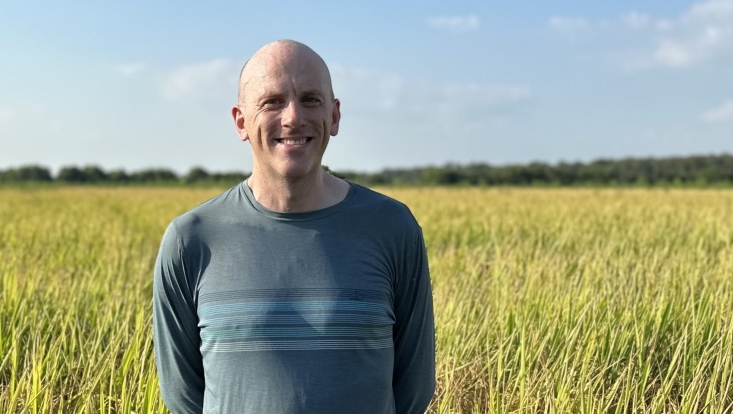Special lecture "Quantifying climate-smart agriculture: Greenhouse gas measurements in Arkansas rice production"
5 May 2025

Photo: Image courtesy of B. Runkle
On May 26, Dr. B. Runkle will give a lecture entitled “Quantifying climate-smart agriculture: Greenhouse gas measurements in Arkansas rice production” from 13:00 - 14:00 in the lecture hall of the Institute of Soil Science. His visit to the Institute of Soil Science is supported by the Verein zur Förderung der Bodenkunde Hamburg.
Abstract: Climate-smart agricultural practices may be feasible for U.S. rice production to create conservation co-benefits amidst the sustainable intensification of agricultural production. As rice cultivation is responsible for 8-10% of the world’s anthropogenic methane emissions, reducing this source is important in generating a climate-friendly food system. An irrigation practice that saves water, known as alternate wetting and drying (AWD), introduces deliberate soil aerobic conditions of 3-10 days each that can also reduce methane emissions. My group and collaborators use a variety of techniques over the rice field landscape to better quantify these dynamics at the production scale in Arkansas, which produces half the rice grown in the U.S. We have demonstrated both the methane emissions reductions and water savings possible through AWD implementation or related techniques. These findings will be contextualized in a discussion about sustainability and opportunities for farmer adaption for aspects of rice production in the U.S. Mid-South.
The New York Times published an article on this topic: “How global rice farming is being transformed by climate change”
Biography: Dr. Runkle is an associate professor of Biological and Agricultural Engineering at the University of Arkansas. He was previously a post-doctoral researcher at the Institute of Soil Science at the University of Hamburg in Germany, and he has degrees in Civil & Environmental Engineering from Princeton University and the University of California, Berkeley. He has had funding from the United States Department of Agriculture, Geological Survey, Department of Energy, NASA, National Science Foundation and the private sector. He researches terrestrial carbon and water cycles in natural and managed landscapes, with a focus on rice production systems in Arkansas. His group works on production farms to test more sustainable approaches to rice production and to develop decision support tools.

